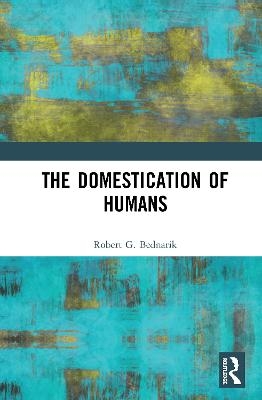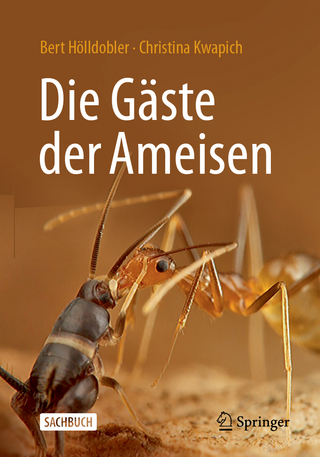
The Domestication of Humans
Seiten
2020
Routledge (Verlag)
978-0-367-89787-1 (ISBN)
Routledge (Verlag)
978-0-367-89787-1 (ISBN)
The Domestication of Humans explains the alternative to the African Eve model by attributing human modernity, not to a speciation event in Africa but the unintended self-domestication of humans. This book is suitable for anyone interested in how and why we became the species that we are today
The Domestication of Humans explains the alternative to the African Eve model by attributing human modernity, not to a speciation event in Africa, but to the unintended self-domestication of humans.
This alternative account of human origins provides the reader with a comprehensive explanation of all features defining our species that is consistent with all the available evidence. These traits include, but are not limited to, massive neotenisation, numerous somatic changes, susceptibility to almost countless detrimental conditions and maladaptations, brain atrophy, loss of oestrus and thousands of genetic impairments. The teleological fantasy of replacement by a ‘superior’ species that has dominated the topic of modern human origins has never explained any of the many features that distinguish us from our robust ancestors. This book explains all of them in one consistent, elegant theory. It presents the most revolutionary proposal of human origins since Darwin.
Although primarily intended for the academic market, this book is perfectly suitable for anyone interested in how and why we became the species that we are today.
The Domestication of Humans explains the alternative to the African Eve model by attributing human modernity, not to a speciation event in Africa, but to the unintended self-domestication of humans.
This alternative account of human origins provides the reader with a comprehensive explanation of all features defining our species that is consistent with all the available evidence. These traits include, but are not limited to, massive neotenisation, numerous somatic changes, susceptibility to almost countless detrimental conditions and maladaptations, brain atrophy, loss of oestrus and thousands of genetic impairments. The teleological fantasy of replacement by a ‘superior’ species that has dominated the topic of modern human origins has never explained any of the many features that distinguish us from our robust ancestors. This book explains all of them in one consistent, elegant theory. It presents the most revolutionary proposal of human origins since Darwin.
Although primarily intended for the academic market, this book is perfectly suitable for anyone interested in how and why we became the species that we are today.
Robert G. Bednarik is a Professor at the International Centre for Rock Art Dating, Hebei Normal University, Shijiazhuang, China. He has served as Convener/CEO and Editor-in-Chief of the International Federation of Rock Art Organisations continuously since 1988.
1. Introduction: the empirical context
2. The gracilisation of humans
3. Evolution and pathologies
4. Human self-domestication
5. The unstoppable advance of exograms
6. Effects of the domestication hypothesis
| Erscheinungsdatum | 21.04.2020 |
|---|---|
| Zusatzinfo | 5 Line drawings, black and white; 27 Halftones, black and white; 32 Illustrations, black and white |
| Verlagsort | London |
| Sprache | englisch |
| Maße | 156 x 234 mm |
| Gewicht | 453 g |
| Themenwelt | Geisteswissenschaften ► Archäologie |
| Naturwissenschaften ► Biologie ► Humanbiologie | |
| Sozialwissenschaften ► Ethnologie | |
| Sozialwissenschaften ► Soziologie | |
| ISBN-10 | 0-367-89787-3 / 0367897873 |
| ISBN-13 | 978-0-367-89787-1 / 9780367897871 |
| Zustand | Neuware |
| Informationen gemäß Produktsicherheitsverordnung (GPSR) | |
| Haben Sie eine Frage zum Produkt? |
Mehr entdecken
aus dem Bereich
aus dem Bereich
produktiv sein ohne Stress – und mehr vom Leben haben
Buch | Softcover (2023)
dtv Verlagsgesellschaft
18,00 €
Wie Myrmecophile mit ihren Wirten interagieren
Buch | Softcover (2023)
Springer (Verlag)
69,99 €


